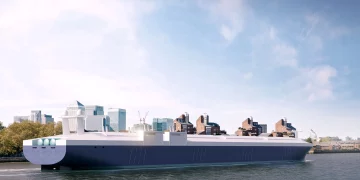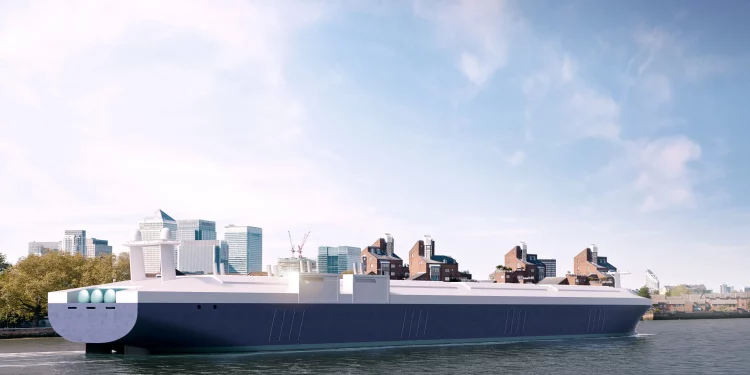The future of ocean cargo transportation might involve ghost ships – but not in the spooky sense. Hapag-Lloyd, a major German shipping company, and KONGsberg, a leading maritime technology firm, recently announced a groundbreaking partnership to develop autonomous cargo vessels. This collaboration marks a significant step towards a future where unmanned ships navigate the world’s oceans, potentially revolutionizing the industry and raising questions about the role of human crews.
A Labor-Intensive Industry:
Ocean cargo transportation is a labor-intensive industry. Crewing large cargo ships requires a significant workforce, and factors like fatigue and human error can pose safety risks. Autonomous ships, equipped with advanced sensors and artificial intelligence, offer the potential to address these challenges.
The Power of Partnership:
Hapag-Lloyd brings vast experience in ship operations and industry knowledge to the table. KONGsberg, on the other hand, possesses cutting-edge expertise in autonomous maritime technology. This collaboration leverages the strengths of both companies to accelerate the development and implementation of autonomous vessels.
The Promise of Autonomous Ships:
Autonomous ships offer several potential advantages:
- Enhanced Safety: Removing human error from the equation could potentially lead to safer navigation and fewer accidents at sea.
- Improved Efficiency: Autonomous ships could operate 24/7, potentially increasing operational efficiency and reducing turnaround times.
- Reduced Crew Costs: While crew jobs would be impacted, autonomous ships could lead to cost savings in the long run.
Challenges and Considerations:
Several hurdles need to be addressed before widespread adoption of autonomous ships becomes a reality:
- Regulatory Landscape: Clear regulations and international agreements governing the operation of autonomous vessels in different maritime zones are crucial.
- Cybersecurity Concerns: Ensuring the security of autonomous ships from cyberattacks is a paramount consideration.
- Social and Ethical Implications: The impact on jobs traditionally held by seafarers and the ethical considerations surrounding autonomous decision-making at sea require careful discussion.
A Voyage Towards the Future:
The Hapag-Lloyd and KONGsberg partnership represents a significant step towards a future with autonomous cargo ships. While challenges remain, this collaboration signifies a commitment to innovation and exploring the potential of automation within the ocean cargo industry.























